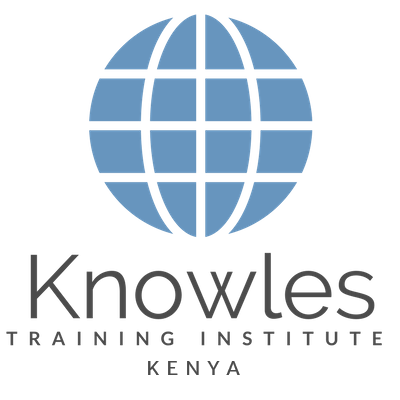Customer Relationship Management Training Course in Kenya
Our corporate training course is also available in Nairobi, Mombasa, Kisumu, Nakuru, Eldoret, Thika, Malindi, Kitale, Garissa, Kakamega, Nyeri, Meru, Machakos, Lamu, Nanyuki, Kisii, Kitui, Kericho, Ruiru, Kapenguria, Bungoma, Athi River, Busia, Homa Bay, Isiolo, Voi, Webuye, Mumias, Kilifi, Diani Beach, Watamu, Naivasha.
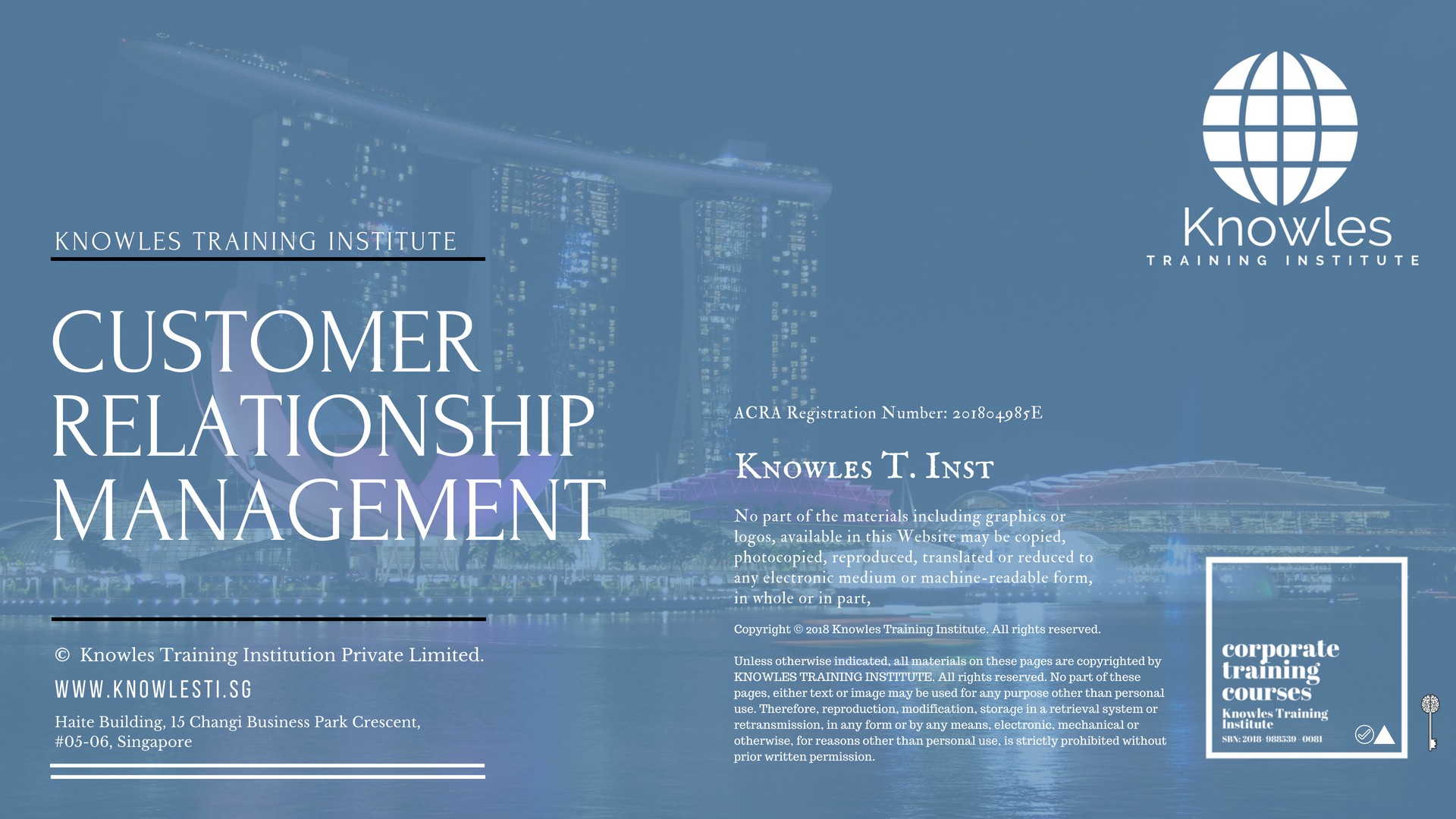
About This Customer Relationship Management Training Course in Kenya
Customer Relationship Management Course in Kenya
Customer relationship management or CRM is a way to manage an organisation’s interaction with it’s current and potential customers. CRM utilises data analysis about the customers’ history with an organisation to enhance business relationships with customers, mainly focusing on customer retention and eventually driving sales growth.
An essential aspect of the Customer relationship management approach is the systems of CRM that gather data from a range of diverse communication channels, including over the phone, a company’s website, live chat, email, marketing materials and social media. Through the Customer relationship management plan and the systems used to aid it, organisations learn more about their target cutomers and how to best cater to their needs.
A company is able to cater to the needs and demands of new and loyal customers through customer relationship management (CRM). This approach consists of several analyses and strategies that delve deep into the activities of the customer with the company. Through CRM technology, companies become successful in satisfying their customers.
Who Should Attend This Customer Relationship Management Course in Kenya Workshop
This Customer Relationship Management Course in Kenya workshop is ideal for anyone who would like to gain a strong grasp and improve their Customer Relationship Management.
All Staff Within An Organisation
Managers
Team Leaders
Executives
Assistants
Officers
Secretaries
Group Size For This Customer Relationship Management Training Program in Kenya
The ideal group size for this Customer Relationship Management course in Kenya is:
Minimum: 5 Participants
Maximum: 15 Participants
Course Duration For This Customer Relationship Management Skills Course in Kenya
The duration of this Customer Relationship Management Course in Kenya workshop is 2 full days. Knowles Training Institute Kenya will also be able to contextualised this workshop according to different durations; 3 full days, 1 day, half day, 90 minutes and 60 minutes.
2 Full Days
9 a.m to 5 p.m
Customer Relationship Management Course in Kenya Benefits
Below is the list of course benefits of our Customer Relationship Management course in Kenya
- Increased personalised service or one-to-one service: Personalising customer service or one-to-one service provides organisations to enhance understanding and gain knowledge of the customers and also to have better knowledge about customers’ decisions, wants and demands.
- Improve customer services: Customers will always have questions, concerns or requests. Customer relationship management
services provide the ability for an organisation for producing, allocating and managing inquiries made by customers.
Course Content For This Customer Relationship Management Training Course in Kenya
Below is the list of course content of our Customer Relationship Management training course in Kenya
- Introduction To CRM
- Why CRM Is Vital In This Day And Age
- The 3 Changes: Consumers, Marketplace, The Marketing Function
- The 5 Generations Of CRM
- Important Concepts Of Customer Value
- The Satisfaction-Loyalty-Profit Chain
- Elements Of A CRM Strategy
- Integration And Alignment Of Organisational Processes
- Data And Technology Support
- Steps In Developing A CRM Strategy
- Implementing The CRM Strategy
- Types Of CRM Projects.
- Why Do CRM Project Fail?
- Customer Analytics
- Traditional Marketing Metrics
- Strategy Customer-Based Value Matrics
- The Business Value Of Data Mining
- Using Database
- Software Tools And Dashboards
- Developing Vs Buying
- Designing Effective Loyalty Programs
- Campaign Planning Development And Management
- CRM And Marketing Channels
- Customer Privacy Concerns And Privacy Protective Responses
- CRM And The Social Media Landscape
- Measuring Customer Profitability
- Resource Allocation Across Marketing And Communications Strategies
- The Future Of CRM
Customer Relationship Management Course in Kenya Value Added Materials
Each participant will receive the following materials for the Customer Relationship Management course in Kenya
Customer Relationship Management Course in Kenya Learner’s Guide
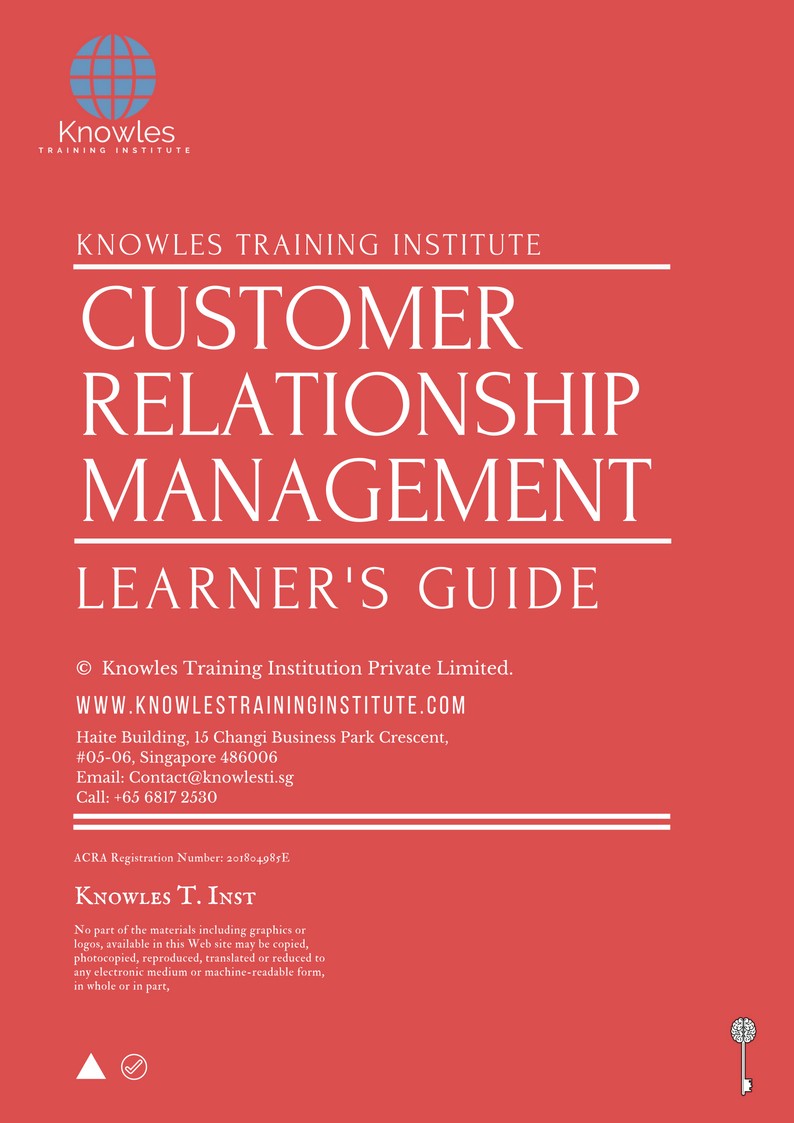
Customer Relationship Management Course in Kenya Handouts

Customer Relationship Management Course in Kenya PPT Slides Used During Course

Customer Relationship Management Course in Kenya Certification
Each course participant will receive a certification of training completion

Course Fees for Customer Relationship Management Course in Kenya
There are 4 pricing options available for this Customer Relationship Management training course in Kenya. Course participants not in Kenya may choose to sign up for our online Customer Relationship Management training course in Kenya.
USD 1,019.96 For a 60-minute Lunch Talk Session.
USD 389.96 For a Half Day Course Per Participant.
USD 629.96 For a 1 Day Course Per Participant.
USD 854.96 For a 2 Day Course Per Participant.
Discounts available for more than 2 participants.
Upcoming Customer Relationship Management Training Course in Kenya Schedule
Contact us for the latest Customer Relationship Management course in Kenya schedules:
Email: contact@knowlesti.ke
Message:
Download Customer Relationship Management Course in Kenya Brochure
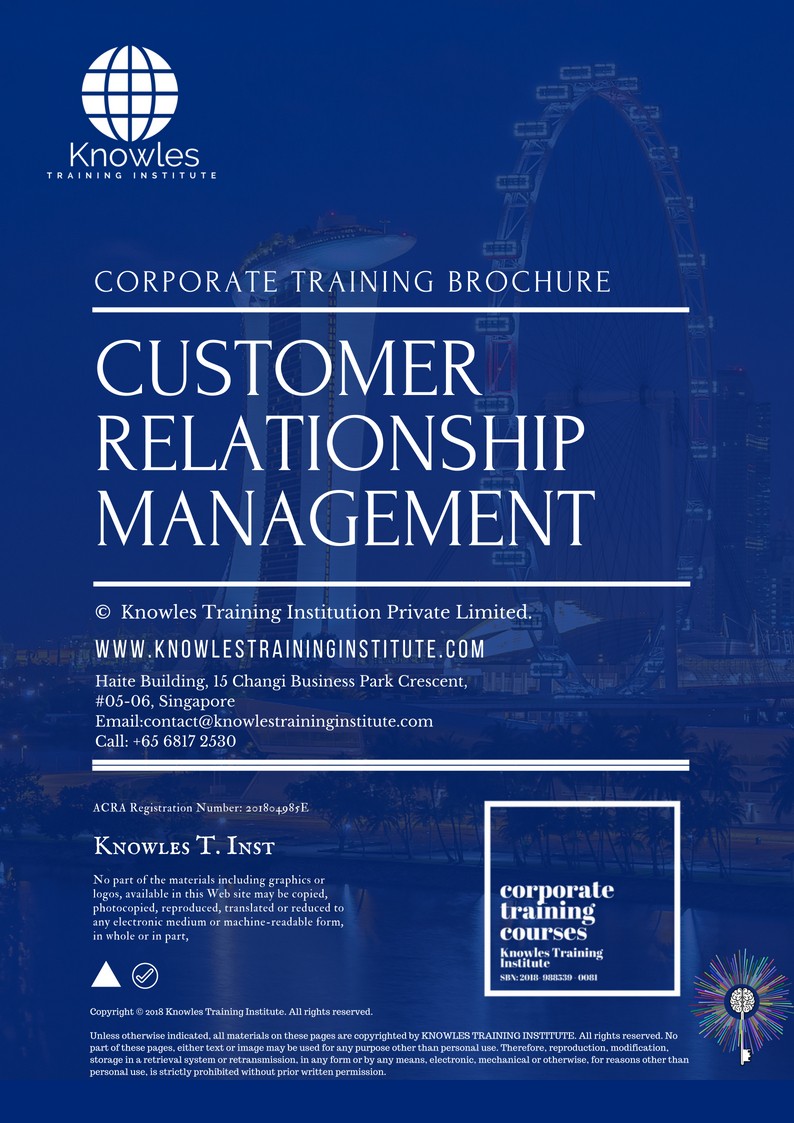
Request for this Customer Relationship Management course in Kenya brochure. Fill up the short information below and we will send it to you right away!
Post Training Support: A vast majority of training does not have any effect beyond 120 days. To work, training has to have a strong pre- and post-training component. Post-training reinforcement helps individuals to recall the understanding and ask questions.
Blended Learning: Learning does not occur in the classroom. Virtually everybody prefers distinct ways of learning. Successful learning should have a multi-channel, multi-modal strategy.
- We Understand The Industry: We’ve got a profound comprehension of the business, business design, challenges, strategy and the that our participants are in and have designed the courseware to cater to their professional needs.
- Course Content: Knowles Training Institute’s material is relevant, of high quality and provide specific learning results. Participants will leave the training course feeling as they have gained a strong understanding and will also be in a position to execute what they have learned sensibly.
Course Development — The workshop modules follow a systematic and logical arrangement. This structure helps to ensure that the course material allows the facilitators to deliver the course in a logical arrangement. Consider the subjects as building bricks into learning, our facilitators slowly build towards a comprehensive picture of this entire topic.
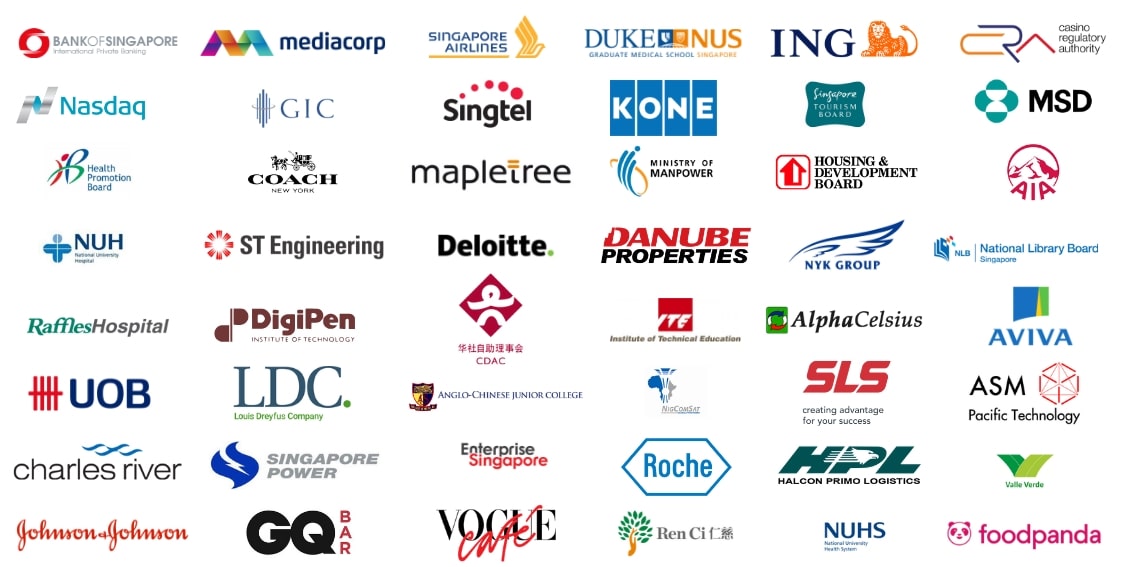

Course Enquiries
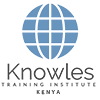
Fill up the form and we will get back to you in less than 1 working day.
Alternatively, give us a call to have one of our training consultants contact you. Our corporate training courses can be contextualized to meet your organization’s training needs. Leverage on our large pool of professional trainers and consultants for your organization’s training needs.
Email: contact@knowlesti..ke
We Guarantee 100% Privacy. We Respect Your Privacy. Your Information Will Never Be Shared.
